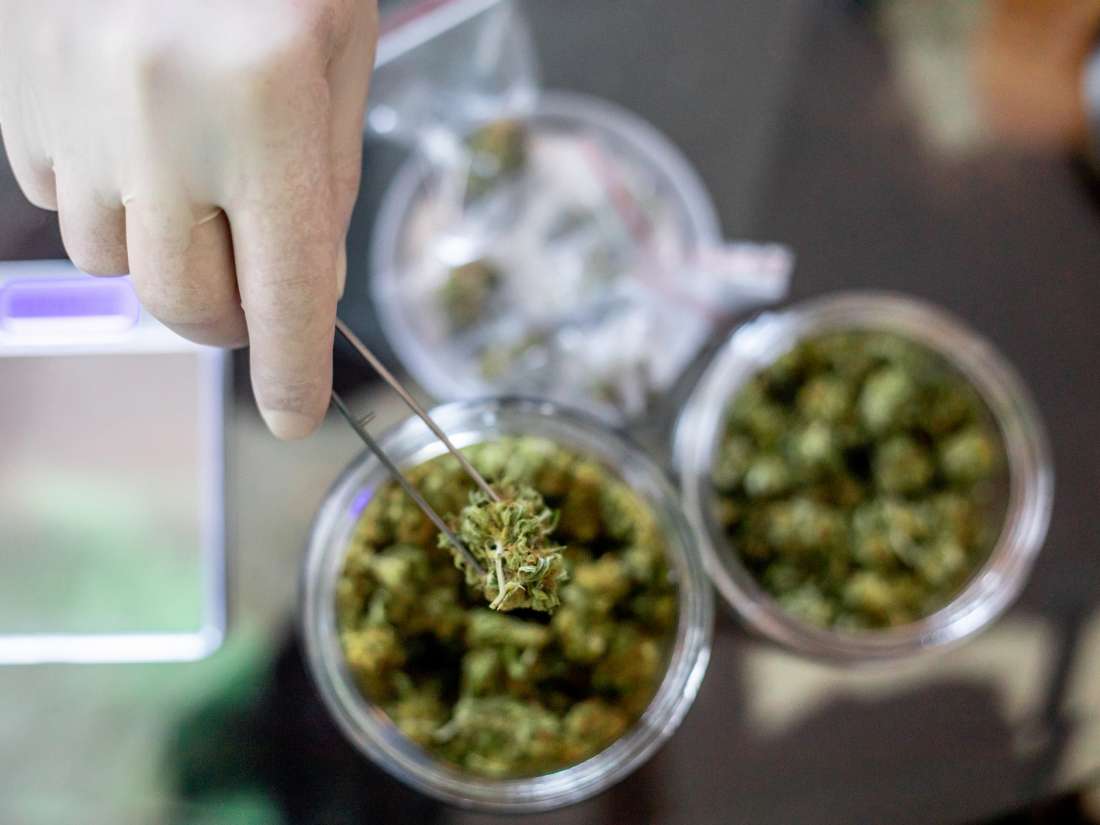Could people with post-traumatic stress disorder (PTSD) benefit from using cannabis to help reduce depressive episodes and thinking about suicide? A study of a population survey from Canada suggests that the preliminary answer is yes.

A recent paper on the findings appears in the Journal of Psychopharmacology.
The paper describes how researchers from the British Columbia Centre on Substance Use (BCCSU), and the University of British Columbia (UBC), both in Vancouver, Canada, analyzed nationally representative data that Canada’s national statistical office had collected in a 2012 mental health survey.
The data that they included in their analysis came from more than 24,000 Canada residents who were at least 15 years of age.
The analysis revealed that those with PTSD who reported not using cannabis in the last 12 months were considerably more likely to experience severe depression and thinking about suicide than those who said that they had used the substance.
“These findings are promising,” says senior study author Michael J. Milloy, “and merit further study in order to fully understand the benefits of cannabis for people living with PTSD.”
Milloy is a research scientist at BCCSU and the Canopy Growth Professor of Cannabis Science at UBC.
Depression, suicide higher with PTSD
The populations of Canada and the United States have some of the highest rates of PTSD in the world. A 2016 study found that 9.2% of people in Canada and 7.2% of those in the U.S. are likely to experience PTSD in their lifetime.
PTSD is a serious psychiatric condition with a cluster of symptoms that can develop in people who have had a traumatic, dangerous, or scary experience. These experiences can involve violence, conflict, and injury.
Nearly everyone will have stress-related symptoms following a trauma, but most will recover after a short while. However, for some people, the symptoms — such as fearful thoughts, bad dreams, and flashbacks — do not go away. Individuals with PTSD continue to experience trauma reactions, even when there is no threat.
People with PTSD are at considerably higher risk of depression and suicide, and many use cannabis to alleviate symptoms.
Prof. Milloy and colleagues wanted to find out whether cannabis helped lessen depressive episodes and suicidal thoughts in people with PTSD.
“We know that with limited treatment options for PTSD, many patients have taken to medicating with cannabis to alleviate their symptoms,” says first study author Stephanie Lake, a doctoral candidate at UBC and a research assistant at BCCSU.
Contrasts of cannabis users and nonusers
Of the people whose data they analyzed, the researchers found that 28.2% of those with PTSD reported having used cannabis in the last 12 months compared with 11.2% of those without PTSD.
Further analysis revealed that among nonusers of cannabis, the chances of having experienced a major depressive episode or having had suicidal thoughts in the last 12 months was much higher in those with PTSD than those without it. The chances were 7.2 times higher for depressive episodes and 4.8 times higher for suicidal thoughts.
In contrast, PTSD “was not associated with either outcome among cannabis-using respondents,” write the authors.
The researchers conclude that the findings offer preliminary evidence from a population survey that cannabis use may help to reduce the link between PTSD and severe depressive episodes and suicidal states.
They suggest that there is a growing need for high quality experimental studies to investigate the effectiveness of using cannabis and cannabinoids to treat PTSD.
“We’re only just beginning to understand what the therapeutic potential of cannabis may be for a variety of health conditions.”
Prof. Michael J. Milloy
